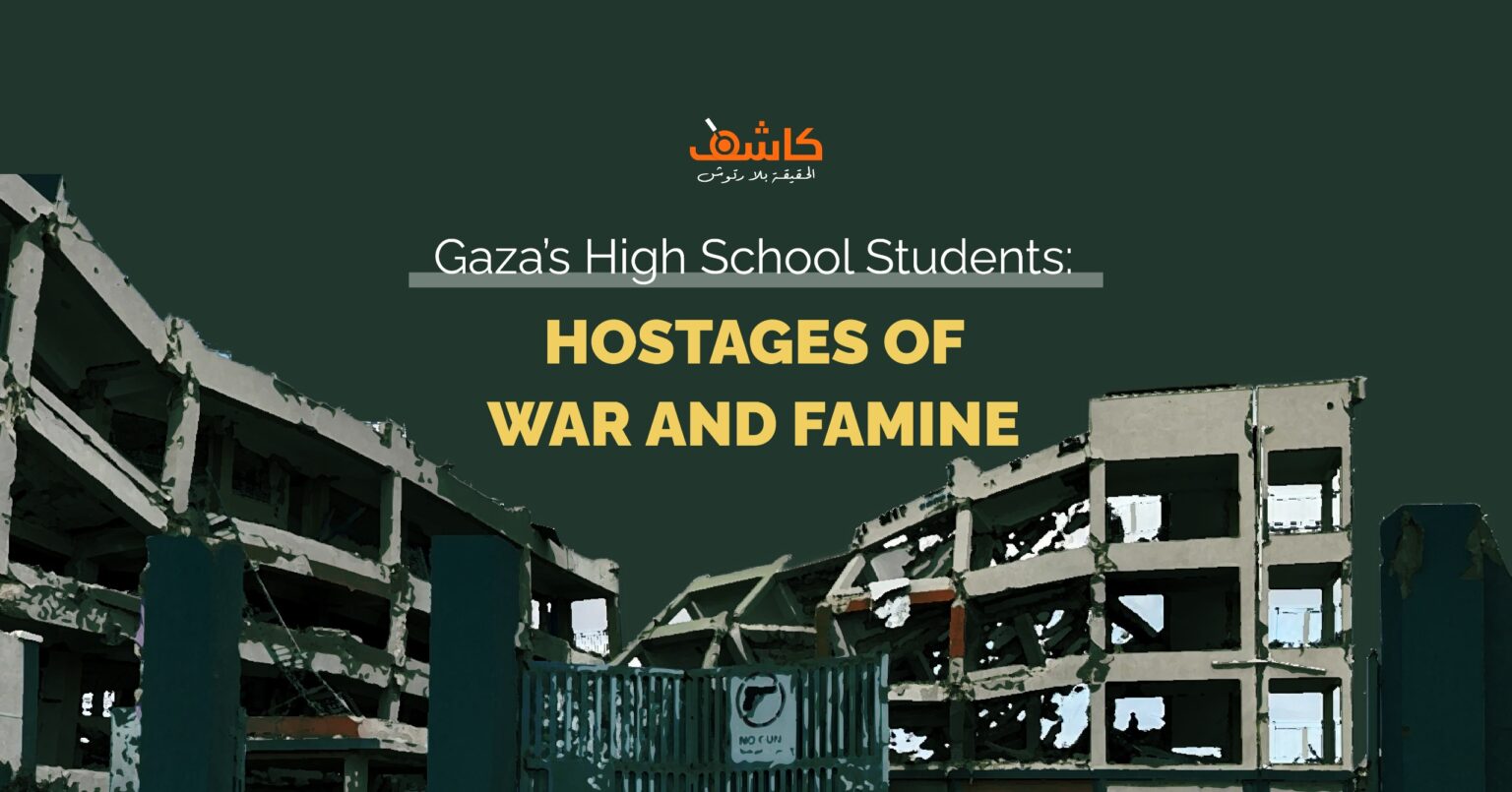Samira Ahmad Wafi – Gaza
Inside a tent near one of the displacement centers in southern Gaza—specifically at the Asdaa Junction—sits student Malak Rishwan, poring over her lessons in an old notebook. She tries to focus amid the constant sound of bombardments and a surrounding atmosphere of fear.
Rishwan, displaced from the al-Mahatta neighborhood in Khan Younis, is supposed to be among this year’s high school seniors. But the uncertainty around when (or if) the final exams will take place continues, especially with Israel’s military assault on Gaza nearing its second year.
“We don’t know when we’ll take the exams. We can’t even study properly. Every day we hear rumors of postponement or cancellation, but there’s no official statement,” says Rishwan.
“The book is in my hand, but my mind is somewhere else”
Rishwan dreams of graduating from high school and enrolling in university, but the psychological toll is overwhelming.
“My mom is busy every day cooking, searching for flour, trying to buy some vegetables. I study using the flash of a phone. It’s extremely difficult to be prepared for exams in these conditions. Even if I try to focus, nothing around us is normal. Fear doesn’t leave us. I keep asking myself: Will we really take the exams? Will we ever get to celebrate our success?”
Crushing uncertainty and an unknown future
Her mother voices deep concern about her daughter’s future:
“Our problem isn’t just with the curriculum. It’s the environment. How can my daughter study while displaced, and the camp isn’t even safe?”
She continues, “We want the Ministry of Education to take this generation into account—not just set a date without making sure conditions are suitable. We’re not against exams.”
“My daughter tries to act strong, but I know her well—she’s broken inside. I want to see her walk into an exam hall with her head held high—not hungry, not afraid, not burdened. I want her to feel safe,” she adds with pain in her voice.
Digital solutions and tent classrooms
Media activist and education expert Mohammad Samir al-Buheiri says delaying the exams was necessary, given the realities on the ground. Constant displacement, vast areas turning into “red zones” due to heavy bombardment, and frequent internet disruptions make any consistent education plan extremely difficult.
al-Buheiri explains that the Ministry of Education is working on launching an at-home exam model via the Tawjihi Exam app. This system relies on AI-powered remote monitoring (audio and video), supported technically by Qatar, to ensure students born in 2006/2007 can still take their final exams.
He notes that despite the harsh conditions, the ministry is trying to make the plan work—especially if a ceasefire occurs. Temporary learning centers may be established in tents equipped with internet access, supported by organizations like UNICEF. These would allow students to take their exams in safe makeshift locations, since 80–90% of schools have been destroyed.
“The very idea that a student might still be able to take the exam offers a glimmer of hope,” al-Buheiri says.
“The high school certificate is no longer just a gateway to university—it’s a psychological lifeline, a way out of this catastrophe. Some students are already 19 or 20 years old and still waiting for the opportunity.”
Recently, the Ministry of Education announced that the timing of the Tawjihi exams depends entirely on field and humanitarian conditions—especially the worsening famine.
It confirmed that no action will be taken unless there is a “real breakthrough” in the overall situation.
No date until the crisis eases
Though the ministry previously announced the Tawjihi exams for Gaza would take place in January 2025 (they were originally scheduled over eight months ago), its latest statement from the High Committee for Exams made clear that no official date will be set while Gaza remains in extreme humanitarian crisis.
The ministry clarified that students born in 2006 will take their exams only after the third round for 2005 students concludes. Students born in 2007 will follow at least a month after the second round ends. Still, this timeline remains entirely dependent on improved conditions.
Despite the ministry’s efforts to find a structured format, the reality on the ground—displacement, destruction, and hunger—makes every student dream of just one simple thing:
To know when and how they’ll sit for the exam. And whether that long-deferred dream will ever come true.
The education system in Gaza has been under unprecedented attack. According to official data, 27 schools have been completely destroyed, and more than 16,000 students and nearly 750 teachers have been killed to date.
